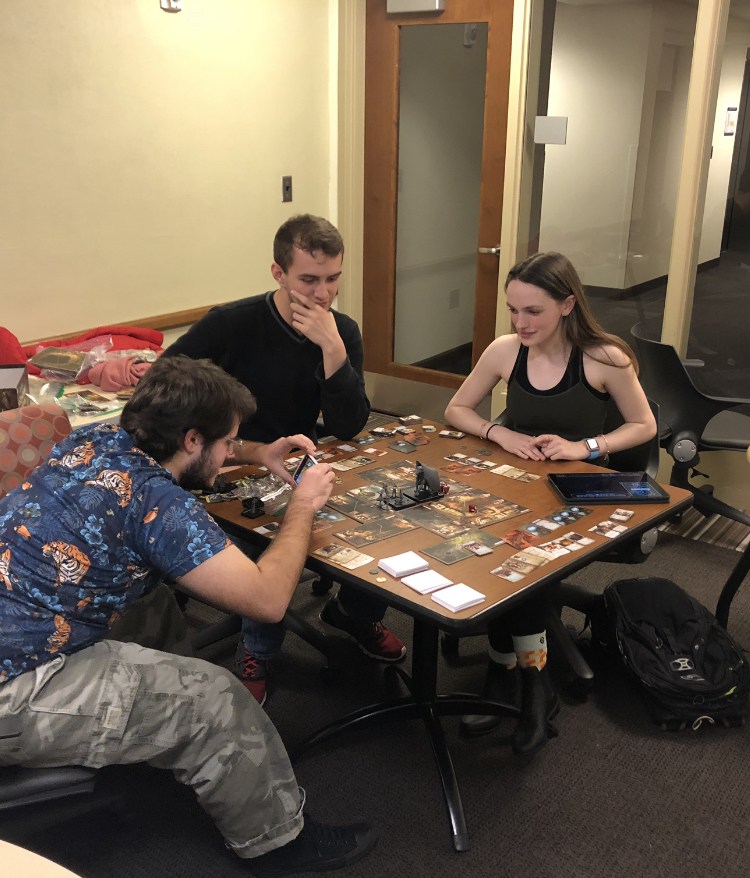A whole new gaming experience

Before this side quest, I thought of board games (excluding games like chess etc.) as simple, easy to pick up, group/family games. The sort of game you’d plonk down infront of the family and within two moves your grandma is an expert. There’s no way they can compete with the complexities of computer games or sports.
Mansions of Madness drove home a point this class has been making all semester. Board games can be rather complicated. Having read a few other classmate’s analyses of this game, as well as Betrayal at the House on the Hill, a common theme was people spending huge amounts of time to understand the rules of the game. Considering the game came with two THICK rule books, this isn’t surprising. This period of uncertainty is prime probing time. Asking questions to others in the group, testing out the mechanics of the game, exploring the house, inspecting areas, learning from stupid moves, these are all examples of probing that I experienced in the initial phase of the game. I had never exeperienced this level of testing and learning in a board game before (and I realise in the grand scheme of things, Mansions of Madness isn’t even that compicated). Mansions of Madness made me realise that board games are a much broader and more versatile medium than I had previously thought.
On a slighlty less analyitcal note, I thought this game was really fun! I played it with Jessica, Austin and Nelson (a cracking bunch). Of the board games I’d played previously, almost all have been Player vs Player or Team vs Team. I believe this is because PvP reduces much of the need for complexity, there’s no requirement to simulate sophisticated monster mechanics or invent complicated common goals. For a PvP game you just need a simple mechanic that unleashes humans’ innate competitive nature and BOSH you’ve got yourself a board game. I loved the fact that this game is cooperative, all of us playing as a team to defeat a common goal (unless someone goes insane). The cooperation in this game was far and away the best thing about it. Making decisions, together, about where to go and strategizing about who should do what based on their character attributes and actions was a blast.
The medium of the game was also very engaging. We played using an iPad which was an easy and seamless experience. Without the iPad, I imagine the mythos phase would have been less dramatic. No one had to pick a card or roll a die, the monsters just moved by themselves; it was automatic, as if they were real entities making decisions. The miniatures also also added a LOT. There’s an injection of urgency and fear the second you see a giant flying squid dragon placed down.
I had an excellent time playing Masions of Madness. It was by far the most nuanced and complex board game I’ve ever played. I’m looking forward to playing it or other games like it again in the future.







